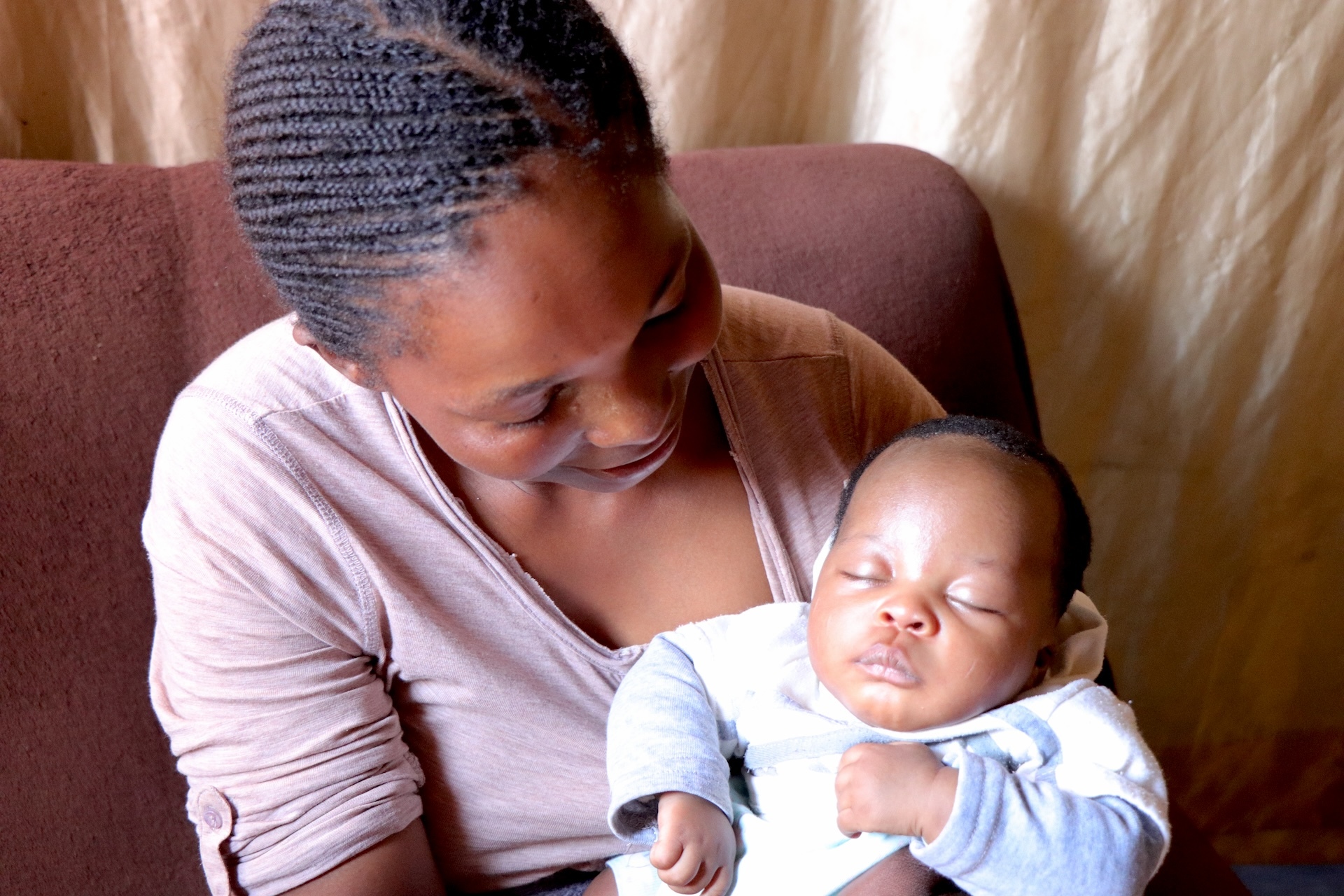Sanaha Moshoeshoe, a father of two, works as a nurse at the men’s clinic at the Maseru Seventh Day Health Centre in Lesotho’s capital city. Moshoeshoe, a staff member of the Elizabeth Glaser Pediatric AIDS Foundation (EGPAF) has been working with men at that center since it opened seven years ago.
“[Being] willing to assist and transform the lives of others always motivates me daily to do my best,” says Moshoeshoe. “Since Lesotho has a high burden of HIV and tuberculosis [TB], my mission is to join hands with other health care workers to help in the fight … and save lives.”
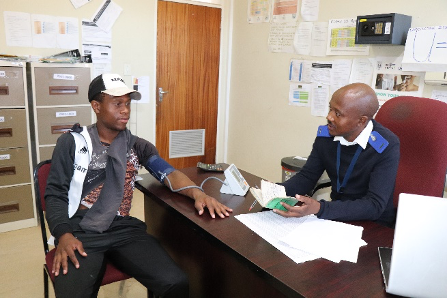
Although Lesotho has the second highest prevalence of HIV in the world—with approximately 25% of the adult population living with HIV—decades of focused attention by the Ministry of Health and partners like the Elizabeth Glaser Pediatric AIDS Foundation has put the mountain kingdom on track to reach the UN goal of 95-95-95 by 2025. This goal means that 95% of the population has been tested for HIV, 95% of those who test positive are on treatment, and 95% of those on treatment are virally suppressed.
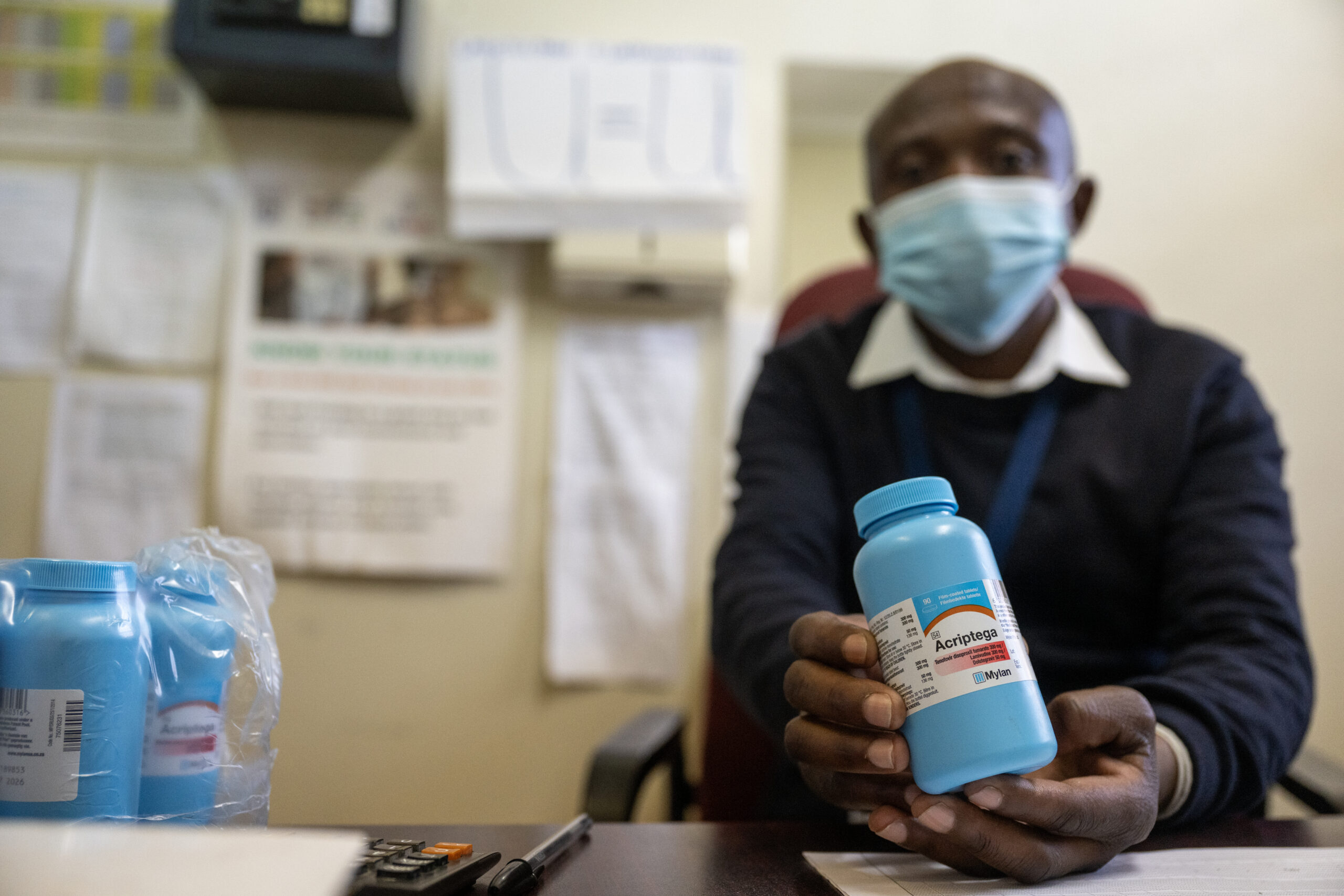
Missing Men
For a variety of reasons, men can be more easily missed in efforts to reach with HIV services. Men tend to be more reluctant than women to seek health services, they may have more rigid work hours, and many HIV programs over the years have been focused more on mothers than on fathers.
But through the men’s clinic, Moshoeshoe and the rest of the staff have been able to create a space that is welcoming to men and open at convenient times for them. Men’s clinics in Lesotho were established by the Ministry of Health in collaboration with EGPAF in 2017 after a study identified the unique needs and barriers that hinder men from accessing health services. There are now 35 such clinics in the country.
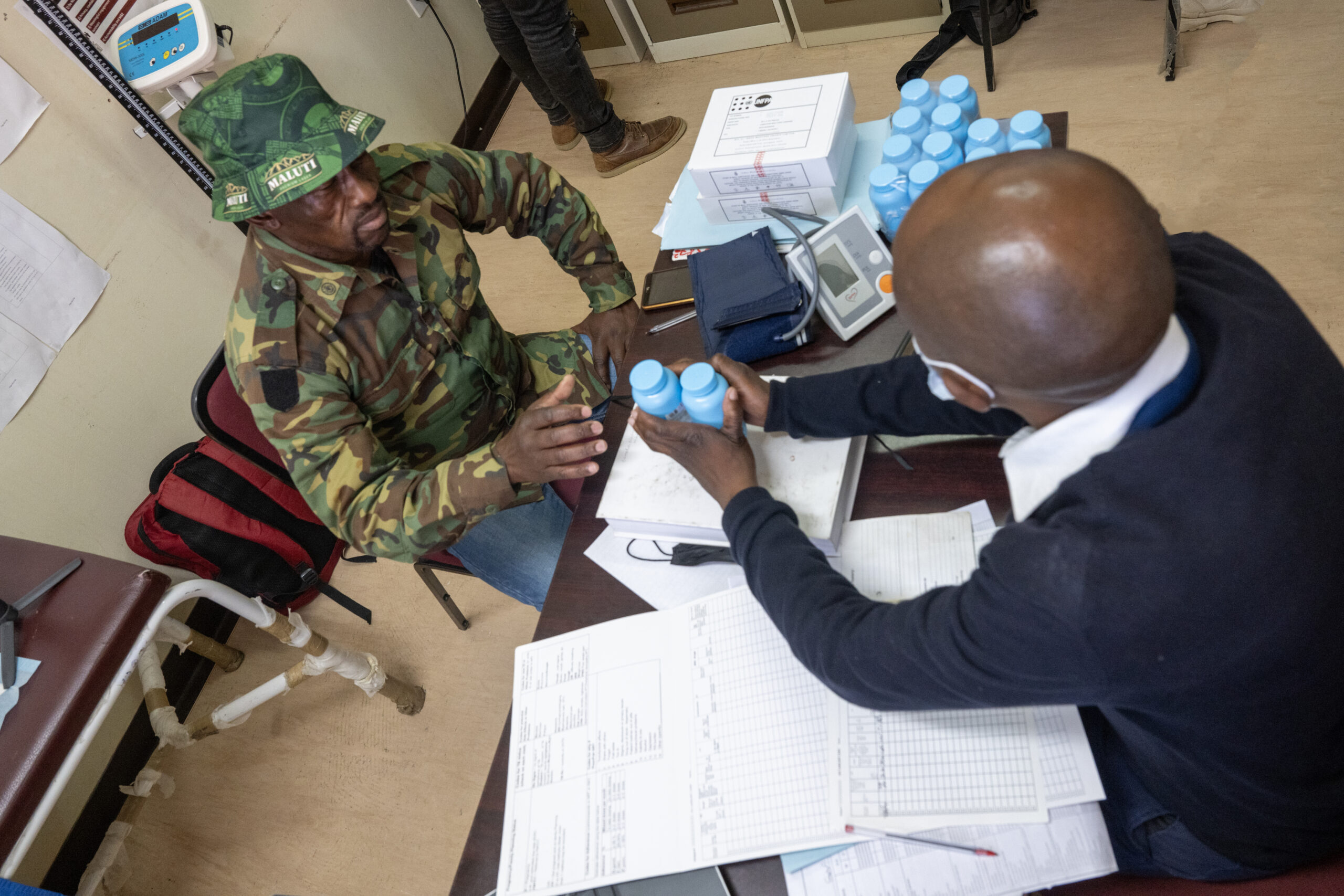
Along with HIV and TB testing and treatment, men’s clinics offer health education and counseling; sexual reproductive health services, including screening of prostate cancer; diagnosis and management of non-communicable diseases such as diabetes, mental health disorders, and hypertension; and other primary care services. This patient-centered approach has proven successful at addressing the variety of health issues that a man may he experiencing and makes it convenient for men to be tested and treated for HIV.
Focus on Fathers and Families
Moshoeshoe says that one issue that he particularly works on is treatment fatigue. A man living with HIV may stop taking antiretroviral medication, which will result in him developing advanced HIV disease.
One recent case involved a client who had stopped taking his medication and was diagnosed with active TB. Moshoeshoe visited the man’s home and discovered that he lives with a 11-year-old boy in one-room house—putting that boy in danger of contracting TB. He tested the child for TB and was able to rule it out for the boy. Then he provided TB preventive therapy, alongside health education and counseling.
Moshoeshoe also learned that the family had no food in the house, reflecting the reality that health risks do not occur in isolation. A family that is going through a hard time financially is often at higher risk for a dangerous health situation. This situation illustrates the importance of making sure that men are not being left out of efforts to end HIV in children and families.
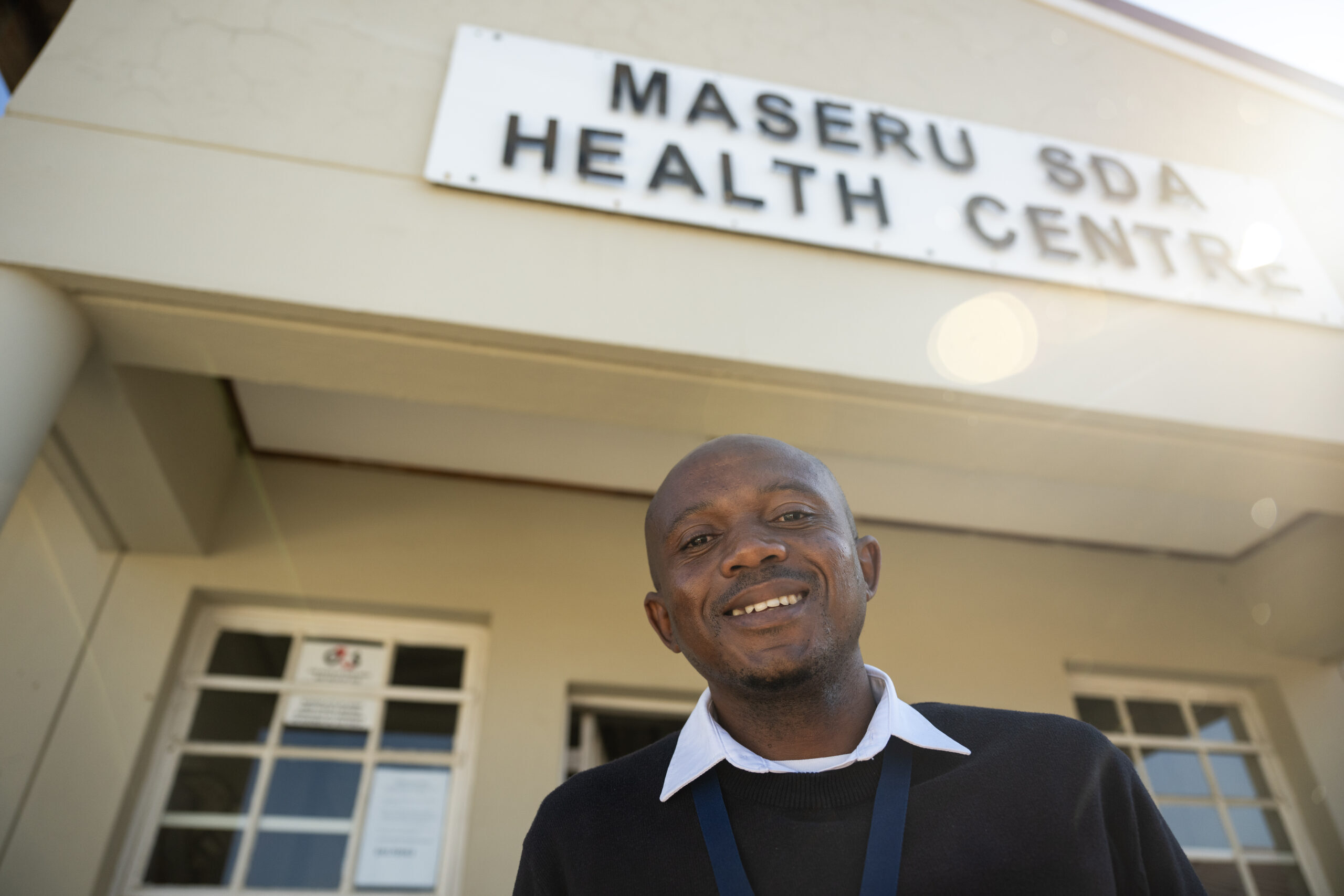
“This situation affected me emotionally,” says Moshoeshoe. He thanks the Maseru Seventh Day Adventist Health Centre management for providing professional counselling for facility staff to help health care workers to cope with the emotional toll. Furthermore, EGPAF also supports its employees through mental health education and counseling services to help employees. He is likewise grateful for frequent trainings and updates about the health conditions that men face.



